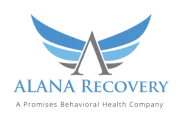Childhood trauma leaves a mark that can shape the way you experience life for years to come. For some, the scars aren’t always visible, but they show up in patterns of fear, sadness, or difficulty connecting with others. How does trauma from the past impact the present? And most importantly, how can healing from post-traumatic stress disorder (PTSD) begin? With the right support, it is possible to process these experiences and move toward emotional freedom. The PTSD treatment program at ALANA Recovery offers a path to wholeness for those ready to reclaim their lives. Call 770.759.7474 to learn more.
How Does Childhood Trauma Affect Mental Health?
The effects of childhood trauma can ripple into adulthood, affecting emotions, thoughts, and relationships. Experiences such as abuse, neglect, or witnessing violence often leave individuals feeling unsafe or unworthy. Over time, these feelings can lead to conditions like anxiety, depression, or post-traumatic stress disorder (PTSD). But what does this look like in everyday life?
Someone who has experienced trauma might constantly feel on edge, as if danger is always around the corner. This is known as hypervigilance, a heightened state of awareness that can be exhausting. Others may struggle with emotional numbness, finding it difficult to express feelings or form close connections. For many, traumatic memories resurface as flashbacks, vivid and distressing reminders of the past.
These challenges can make it difficult to navigate daily life, but understanding their root causes is a critical step toward breaking free from their hold. Trauma therapy makes that possible.
The Physical Effects of Early Trauma
Trauma doesn’t just live in the mind—it takes up space in the body as well. Stress from early adverse experiences can disrupt the body’s natural balance, leaving individuals more vulnerable to chronic health problems. For example, those with a history of childhood trauma often report frequent headaches, muscle tension, or digestive issues. Why does this happen?
When the body is exposed to prolonged stress, it remains in a heightened state of alert. Over time, this constant activation of the stress response can weaken the immune system, strain the heart, and even impact brain function. Imagine feeling tense or uneasy all the time—that’s what untreated trauma can do. Addressing both the physical and emotional effects of trauma is essential for holistic healing.
Steps Toward Healing
Recovering from childhood trauma is a deeply personal journey, but there are proven methods that can help individuals regain control of their lives. Healing isn’t about forgetting the past—it’s about learning to move forward with strength and resilience. Some key components of trauma recovery include:
- Therapy – Trauma-focused counseling offers a safe space to process difficult memories and explore healthier ways to cope.
- Self-care practices – Activities like mindfulness, journaling, or yoga can help calm the mind and build emotional balance.
- Support networks – Connecting with others who understand similar struggles can foster encouragement and a sense of belonging.
Consider this: What would life feel like without the weight of the past holding you back? While recovery takes time and effort, these steps lay the foundation for a brighter future.
Find Support for the Journey at ALANA Recovery
The effects of childhood trauma can feel overwhelming, but they do not have to define the future. Healing is possible with the right tools and support. A PTSD treatment program offers the care needed to address trauma and its impact, guiding individuals toward relief and renewal.
Specialized help is available through ALANA Recovery for those ready to take this step. Call 770.759.7474 or reach out online today to discover how trauma therapy and our overall trauma-informed approach can empower you to move forward. Life after trauma is possible—take the first step toward reclaiming it.

